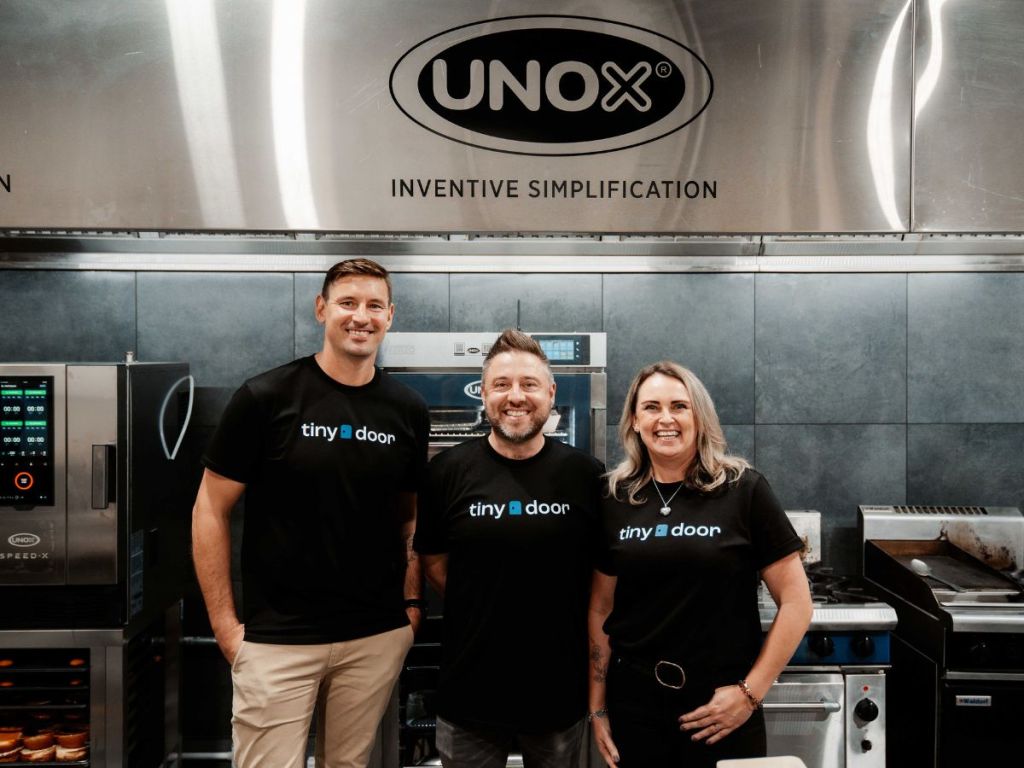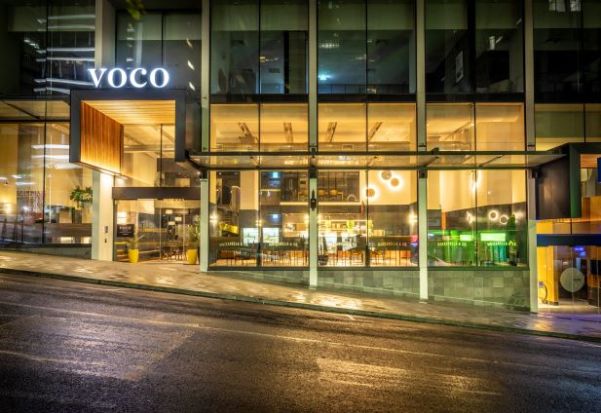A new ‘hole-in-the-wall’ food ordering service is about to turn the concept of a commercial kitchen on its head.
Tiny Door is inspired by a vision to bring a quick and different food model to New Zealand.
It aims to support hospitality businesses navigating a turbulent market through ground-breaking technology.
“It’s a different food experience, no one in the world has done this,” says Tiny Door co-founder Ally Kulpe.
The service works off a hub and spoke model. Food will be prepped in a hub kitchen, then taken to a Tiny Door site using UNOX technology.

This includes a ‘hot fridge’ which controls exact temperature and humidity, keeping food fresher for longer.
“The technology means food is always at the perfect temperature and stays fresh for much longer.”
There’s also a speed oven that can cook a whole butterfly chicken in 6 minutes. The new concept gives businesses the license to explore with minimal risk.
“We kept hearing from people in the industry who want to try some new concepts but didn’t want to open a restaurant in a fickle, turbulent industry,” says Kulpe.
“The biggest thing for us is giving people confidence to explore new products without investing in long leases and expensive bricks and mortar. We take care of the lease and operating costs so our food partners can focus on creating amazing meals. It enables them to grow and scale up with significantly less risk.”
Customers will be able to order through a QR code at a Tiny Door site, or online, and food will be handed to them instantly through a small door by one of the chefs inside.
“It’s almost like an anonymous vending machine, there’s a bit of mystery to it which adds to the experience.”
The first Tiny Door site will launch in July in Christchurch, with multiple sites to follow. Many food partners have already come on board for the first Tiny Door, including Earl, Bootleg Burger, Bar Yoku and Smokey T’s.
Smokey T’s owner Tristin Anderson says it’s an exciting opportunity.
“I love that it gives a lot of the smaller guys a chance to get their creative juices flowing. Through this model, we are going to explore some different stuff that isn’t on our everyday menus,” Anderson says.
“We’re creating a brand outside of our barbecue restaurant. We’re still using our smoked meats; it’ll just be a different style with a bit of a Kiwiana twist.”
Anderson says it’s going to be a gamechanger for smaller businesses starting out to eliminate their high overheads.
“It introduces you to the latest technology available. To be able to use that without having to put your hands in your pockets yourself is incredible, it takes all that pressure off.
“We can concentrate on what we’re good at – that’s cooking – and Tiny Door takes care of the rest.”
The smallest Tiny Door site will be 16 square metres.
“You don’t need much room, it’s a tiny kitchen with a tiny door,” Kulpe says.
Food partners can book a breakfast, lunch or dinner spot at Tiny Door sites, providing customers with three different food offerings each day.
“Customers are going to get restaurant quality food within seconds, and they’re going to have continual choice.”








